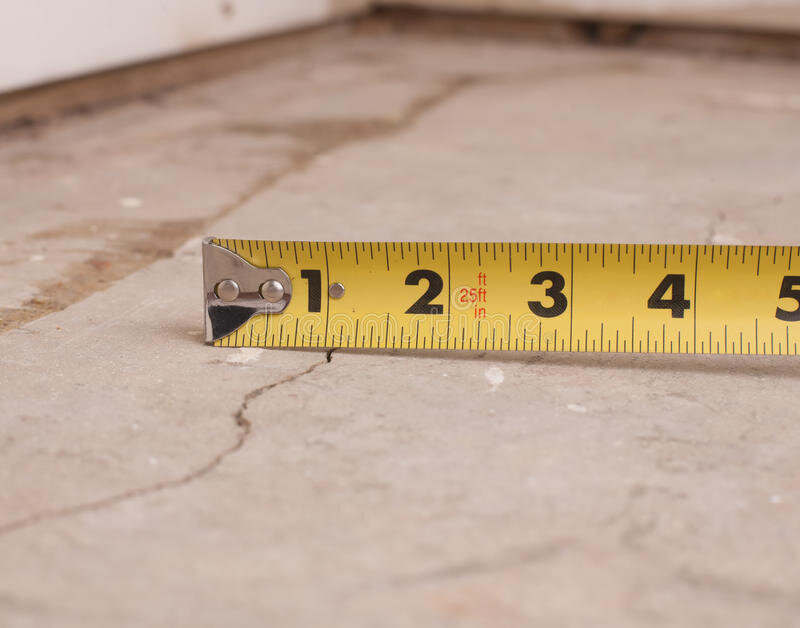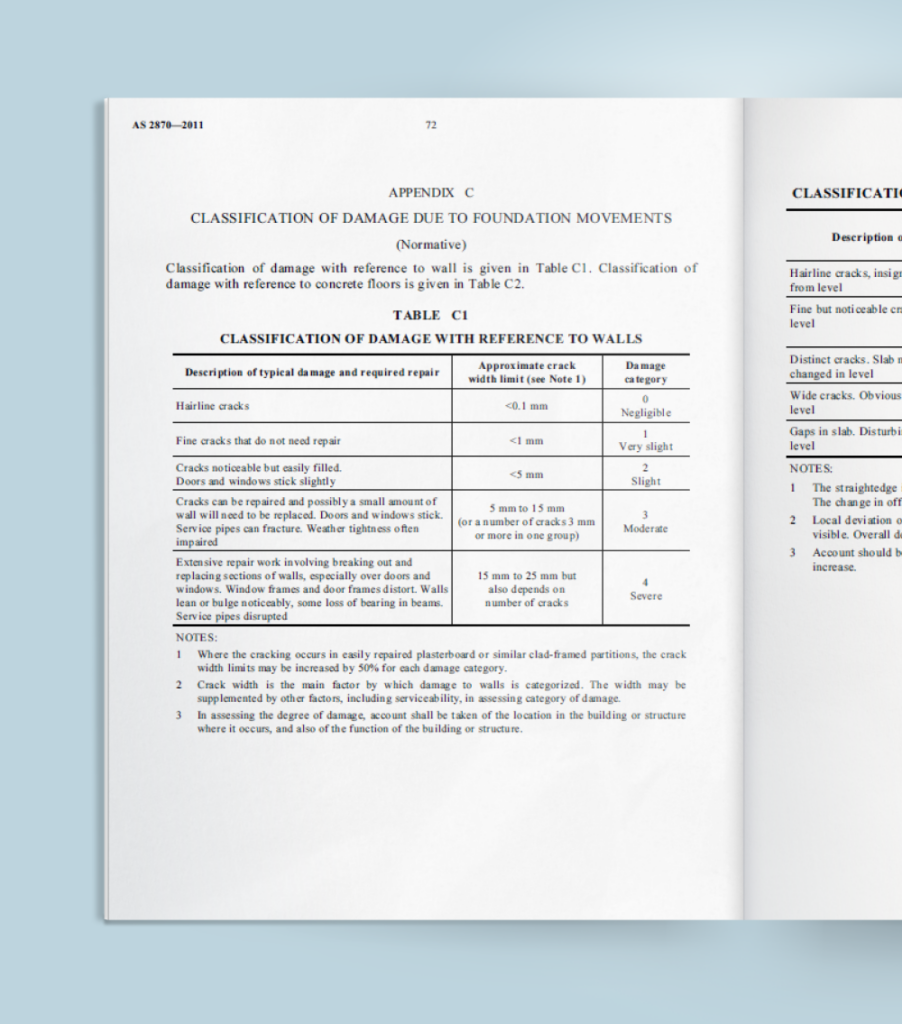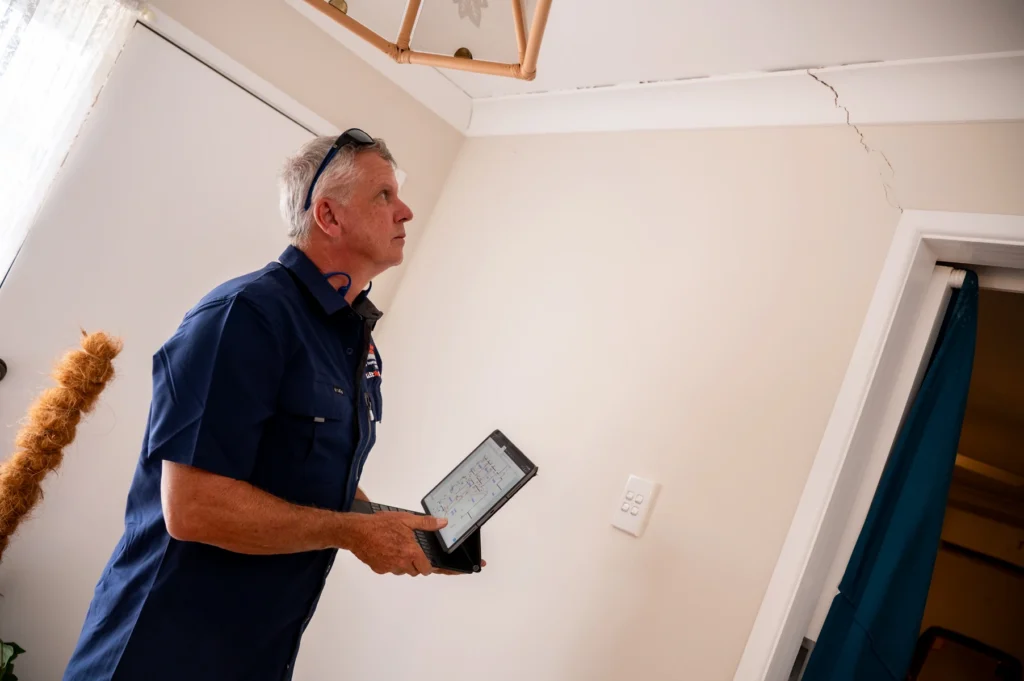So you’ve discovered cracks in your walls
If you’ve recently uncovered some cracks in the walls of your house, or if the size and/or quantity of cracks has increased to such an extent that you’ve decided to do some research, the first thing to do is remain calm! You’re not alone.
Plenty of houses crack. We’re going to help you understand if they are likely to be superficial or serious. And what steps you can take to identify the root cause and whether further action is needed. Some of these things you can DIY. Other parts you’ll need help with.
Track your cracks
The first thing to do is to identify how many wall cracks you have throughout the building (internal and external), how big they are are and track their progression if they are growing. This will generally require you to grab:
- a tape measure or ruler
- a camera (or phone with camera)
- a pen and notepad
#1 Measure each crack
At each crack in your house, have your camera at the ready. Place a ruler over the crack for scale (or get someone else to hold it there) and take a photo of the crack. Note the following on your notepad (or use “text markup” on your phone to add notes to the photo):
- How wide is the crack (hairline or in mm)?
- How long is the crack (end to end)?
- How much change? Has it increased in size? If so, how rapidly?
Ideally you should keep an eye on these cracks and continue to note any changes in the future.

#2 Rate the seriousness
The Australian Standard AS2870-2011 provides guidelines for classification of damage to walls that is helpful to this situation, as follows:
Hairline cracks [less than 0.1mm] – classed as negligible. No action needed
Fine cracks [less than 1mm] – very slight and do not need repair
Slight cracks [less than 5mm] – noticeable but can be easily filled
Moderate cracks [5mm to 15mm OR several cracks 3mm or more in one group] – cracks can be repaired, possibly a section of wall may need replacing, doors and windows may be sticking, service pipes may fracture.
Severe cracks [15mm to 25mm, but also depends on number of cracks] – expensive repair work is required.
Where do each of your cracks rate?
From the hundreds of cracked wall assessments we’ve done and cracked wall data we’ve reviewed, we can add the following guidance to the Standard:
- If you have hairline cracks, no action is needed, but don’t ignore them. Monitor them and take action if changes occur.
- If you have a single crack greater than 5mm OR if you have several cracks each greater than 3mm, then you have a potential serious situation on your hand. We would recommend contacting one or more experts for further advice and get some options – see the next step.

#3 Seek Expert Insight with Foundation Solutions & Our Partnered Engineer
Why an Engineer’s Report Matters
After your complimentary assessment, the next step is a structural engineer’s report. This gives you independent, expert guidance on what’s happening beneath your home and ensures any solution is the right one.
Benefits of an Engineer’s Report
Independent Expertise
A licensed engineer provides unbiased, professional advice backed by qualifications and experience.
Clear Diagnosis
Get to the root cause of cracks, movement, or subsidence with a thorough, assessment in accordance with AS2870.
Tailored Solutions
The engineer’s recommendations ensure your home gets the right fix — not a temporary patch.
Confidence & Compliance
Most underpinning and structural works require an engineer’s report. Having this report means your repair is backed by industry standards and documentation.
How It Works
- Complimentary Visit – Our team identifies signs of movement or cracking.
- Engineer Assessment – Our partnered engineer provides a detailed report of findings and recommendations.
- Tailored Solution – Together, we deliver a foundation repair plan that lasts.
Your Next Step
We recommend arranging your engineer’s inspection as soon as possible. This ensures clarity, avoids delays, and gives you peace of mind about your home’s foundation.
 Speak to your Foundation Solutions consultant today to book your engineer’s report.
Speak to your Foundation Solutions consultant today to book your engineer’s report.



